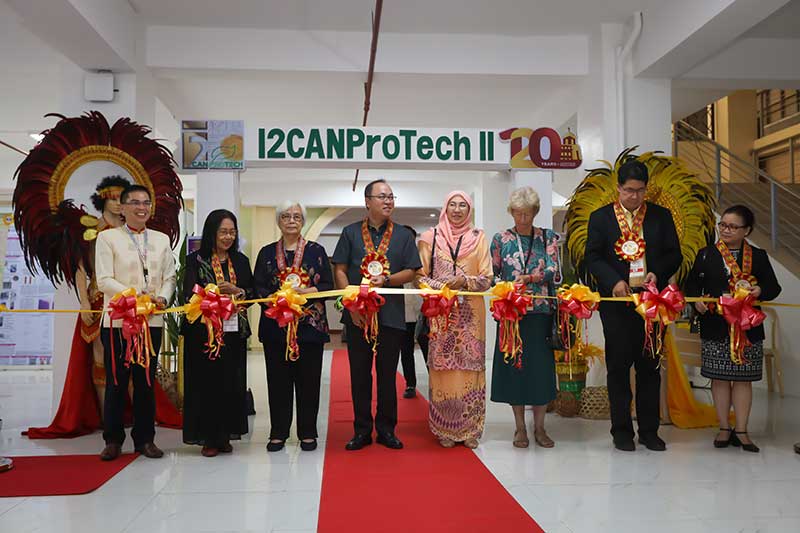
By Joseph Bernard A. Marzan
The University of San Agustin (USA) has resumed its international research conference on natural products technology, marking a major return to the field since the COVID-19 pandemic.
The event aims to highlight the ongoing Ilonggo innovation in developing products from natural sources.
USA’s Centers for Chemical Biology and Biotechnology (C2B2) and for Natural Drug Discovery and Development (CND3) inaugurated the second Iloilo International Conference on Advanced Natural Products Technology (I2CANProTechII) on Wednesday, March 6.
Originally intended to be a biennial event, the conference has reconvened for the first time in nearly five years, due to the pandemic’s disruption of the original sequence.
“I2CANProTechII” brings together a diverse group of participants, including scientists, researchers, academic and industry professionals, government representatives, and students, to exchange knowledge on advancements and technologies geared towards improved health outcomes. It features speakers from an international assembly of countries.
Centering on the theme ‘OMICS Odyssey: Translating Natural Products into Technologies for Better Health Outcomes,’ the conference’s objective is the exploration and identification of new health-promoting products and knowledge.
The commitment to research and development is demonstrated through research posters by Senior High School and undergraduate students, as well as the university’s scientists and researchers.
USA has partnered with the Atta-ur-Rahman Institute for Natural Products (AuRIns) at Universiti Teknologi MARA’s Puncak Alam campus in Selangor, Malaysia for the conference. AuRIns is dedicated to natural drug discovery and herbal medicine analysis.
Dr. Jonel Saludes, USA’s Vice President for Research and Global Relations, expressed that the conference aims to serve as a venue for disseminating research and informing the public about the university’s research impact.
He showcased several products derived from the university’s research, which have been commercialized with industry partners, including skin antibiotics developed from kadios and Philippine honey, and a forthcoming food supplement for dengue patients.
“The goal of the research programs of the university is not just to publish so that the academics and the professors get promoted or discover new knowledge,” Saludes said.
“The knowledge discovered by the university must be translated to useful products whether these products are in the form of natural medications, or science-backed food products, or public services for Geographically Isolated and [Disadvantaged] Areas,” he added.
USA President Rev. Fr. Frederick Comendador underscored that the I2CANProTechII aligns with the university’s 120th founding anniversary in June.
“What we are doing is kind of a continuation of the mandate of the university, [which is to] create [or discover] new knowledge […] which will be useful to the community. We owe it a lot to the administrators, deans, and students who excel a lot,” Comendador said.
“We hope that we continue to exist for more than 100 years. We want to be responsive to the needs of the community and of the society,” he added.





















